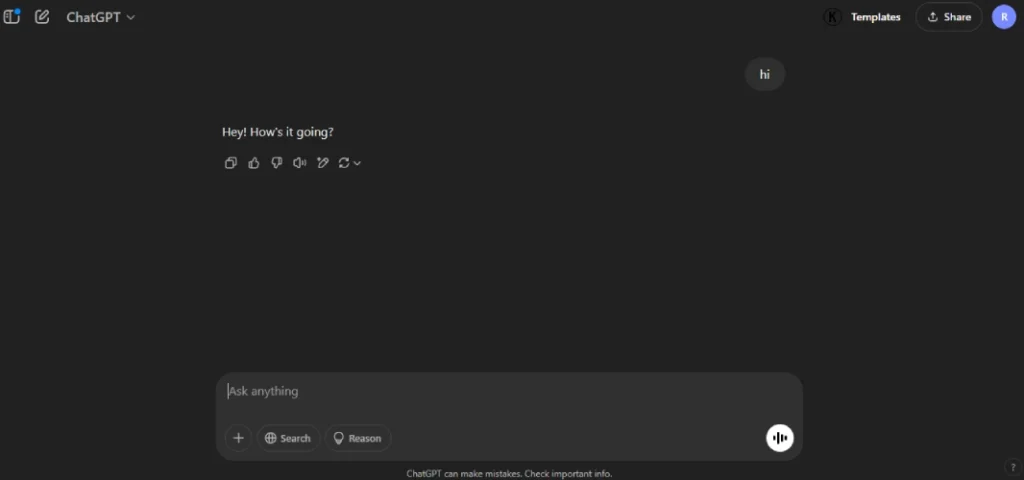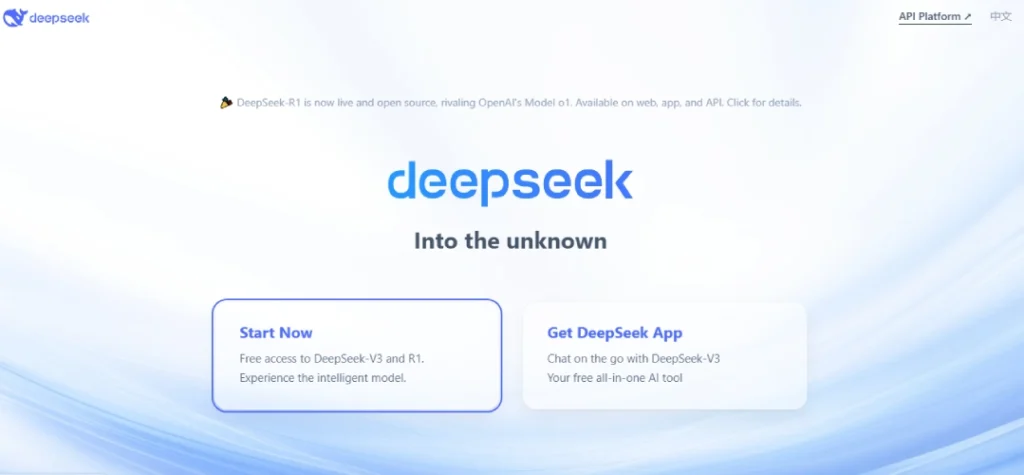Introduction
With artificial intelligence advancing rapidly, conversational AI chatbots have become an essential tool for various applications, from customer service to content generation. Among the leading AI-powered chatbots, OpenAI’s ChatGPT and China’s DeepSeek have emerged as strong contenders. Both offer advanced natural language processing (NLP) capabilities, but they cater to different user needs and markets.
In this detailed comparison, we’ll explore what makes ChatGPT and DeepSeek unique, highlight their differences and similarities, and analyze their pros and cons to help users choose the right AI assistant.
What is ChatGPT?

ChatGPT is an AI-powered chatbot developed by OpenAI, built on the GPT (Generative Pre-trained Transformer) architecture. The most recent version, GPT-4, offers advanced reasoning capabilities, better contextual understanding, and improved language fluency. It is widely used for content creation, coding assistance, research, and various other applications.
Key Features of ChatGPT:
- Multimodal capabilities (text and image processing in GPT-4 Turbo)
- Vast training dataset covering multiple languages and industries
- Advanced reasoning and contextual memory (in pro versions)
- API integration for businesses and developers
- Extensive third-party plugin support
ChatGPT has gained significant traction globally, being integrated into applications like Microsoft Copilot and various enterprise solutions.
What is DeepSeek?

DeepSeek is a Chinese-developed AI chatbot created to compete with OpenAI’s ChatGPT. It focuses on high-performance NLP models optimized for Chinese-language processing while also supporting multilingual capabilities. DeepSeek is backed by large-scale language models trained on extensive datasets tailored to regional and global AI applications.
Key Features of DeepSeek:
- Advanced Chinese language understanding
- Strong multilingual support
- Customization options for enterprise users
- AI-powered search and analysis functions
- Competitive performance in NLP benchmarks
DeepSeek is primarily designed to cater to the Chinese market while expanding its reach to a global audience through enhanced multilingual support.
Main Differences Between ChatGPT and DeepSeek
| Feature | ChatGPT | DeepSeek |
| AI Model | GPT-4 & GPT-3.5 | DeepSeek’s proprietary model |
| Languages | Multilingual | Primarily Chinese (limited multilingual support) |
| Market Focus | Global users | Primarily China |
| Use Cases | Content creation, coding, research, and automation | Research, text summarization, and localized AI services |
| API Support | Strong API integration for businesses | Limited API support |
| Customization | Businesses can fine-tune models | Less customization available |
| Regulatory Compliance | Complies with global AI standards | Complies with Chinese regulations |
| Availability | Accessible worldwide | Limited to China |
| Creative Writing & Coding | Strong capabilities | Weaker in creative writing and coding |
| Price | $20/month, ChatGPT Plus is well worth the cost | It’s all free. |
| Strengths | Creativity, multilingual support, programming assistance | Research, summarization, localized content |
Similarities Between ChatGPT and DeepSeek
| Feature | ChatGPT | DeepSeek |
| AI Model Architecture | Uses large-scale language models with deep learning to generate human-like text | Also based on deep learning and LLMs for advanced natural language processing |
| Multilingual Support | Strong global multilingual capabilities | Supports multiple languages, with a strong focus on Chinese |
| Use Cases | Content creation, research, coding, AI-powered customer support | Similar applications, especially in research and text summarization |
| Enterprise Solutions | Provides API access and business integrations for automation | Offers enterprise solutions, mainly for Chinese businesses |
| AI Training Data | Trained on diverse datasets, including books, web pages, and research papers | Uses a mix of Chinese and global datasets for training |
| Continuous Learning & Updates | Frequently updated with improved versions | Also receives updates to enhance accuracy and functionality |
| Text Summarization | Can summarize long-form content efficiently | Strong in summarization and research-based content |
| Chatbot & Virtual Assistant Features | Works as a chatbot for customer service and virtual assistance | Provides chatbot functionality with a focus on Chinese users |
| Business & Productivity Applications | Used in automation, content marketing, and AI-driven tools | Supports local business needs and enterprise automation |
| Research & Education | Used in academic research and learning support | Popular for research, especially in China |
Pros & Cons for ChatGPT
Pros:
✅ Highly advanced in English and global languages
✅ Supports multimodal capabilities (text and images)
✅ Extensive API integration for businesses
✅ Regular updates and strong developer ecosystem
✅ Versatile across multiple industries
Cons:
- Restricted in China due to regulations
- Premium features require a paid subscription
- AI-generated content may sometimes lack deep industry-specific accuracy
Pros & Cons for DeepSeek
Pros:
✅ Excellent performance in Chinese-language tasks
✅ Optimized for regional compliance and regulations
✅ More affordable pricing for Chinese enterprises
✅ Growing multilingual capabilities
Cons:
- Less effective in non-Chinese languages compared to ChatGPT
- Limited global accessibility and recognition
- Fewer third-party integrations and plugins
Conclusion
Both ChatGPT and DeepSeek are powerful AI-driven chatbots, each excelling in different areas. ChatGPT is ideal for users seeking a highly versatile AI assistant with strong English-language capabilities, extensive integration options, and multimodal features. On the other hand, DeepSeek is a better choice for Chinese-language users and businesses needing a chatbot that aligns with regional regulatory requirements.
If your primary use case is global communication and content creation, ChatGPT is the better option. However, if you require an AI model optimized for Chinese-language processing and regional compliance, DeepSeek might be the right choice.
FAQs
1. Which chatbot is better for business applications?
It depends on the region. ChatGPT offers global accessibility with strong API support, while DeepSeek is better suited for Chinese enterprises.
2. Can DeepSeek be used outside of China?
Yes, but it is primarily optimized for Chinese users. Its multilingual support is growing, but it is not as globally recognized as ChatGPT.
3. Is ChatGPT available for free?
Yes, but the free version is limited to GPT-3.5. The premium GPT-4 Turbo version requires a subscription.
4. Does DeepSeek support languages other than Chinese?
Yes, but its primary strength lies in Chinese-language NLP. It does support other languages, but not as efficiently as ChatGPT.
5. Which AI chatbot has better integration options?
ChatGPT currently leads in third-party integrations and API capabilities, making it more versatile for business applications.